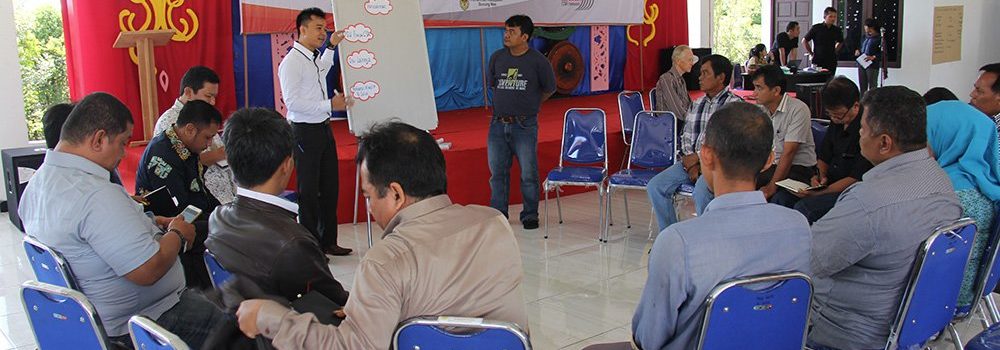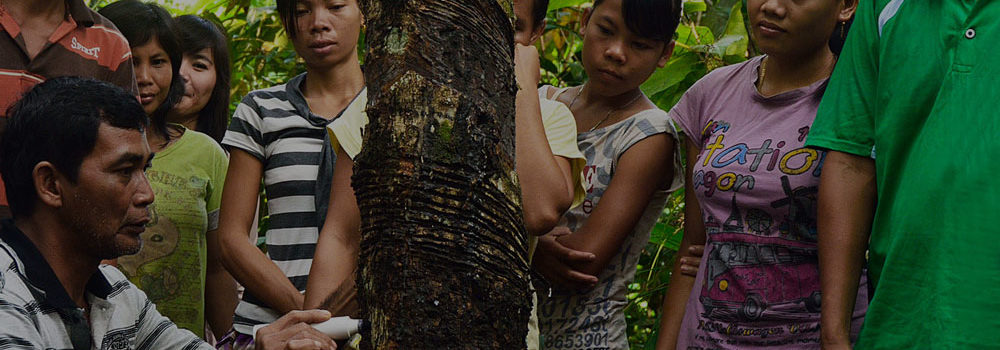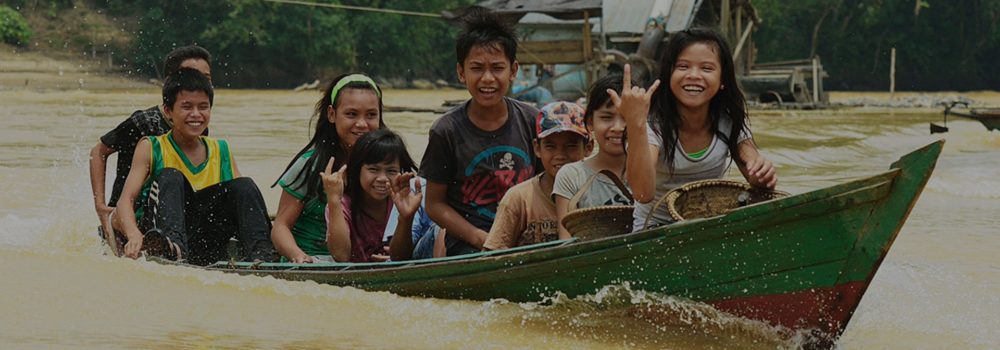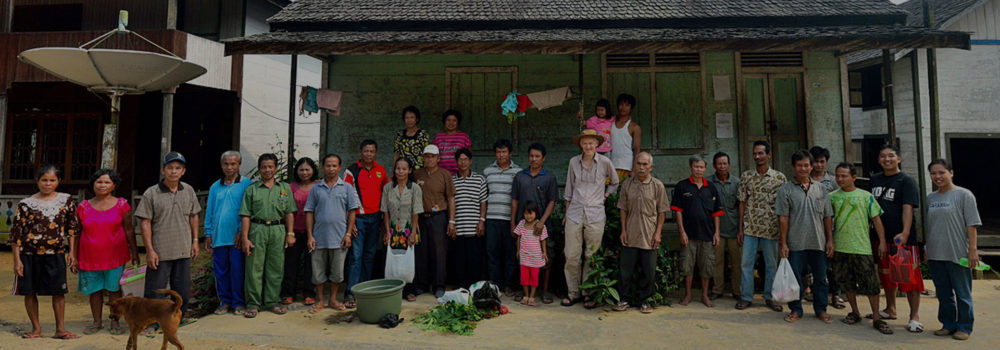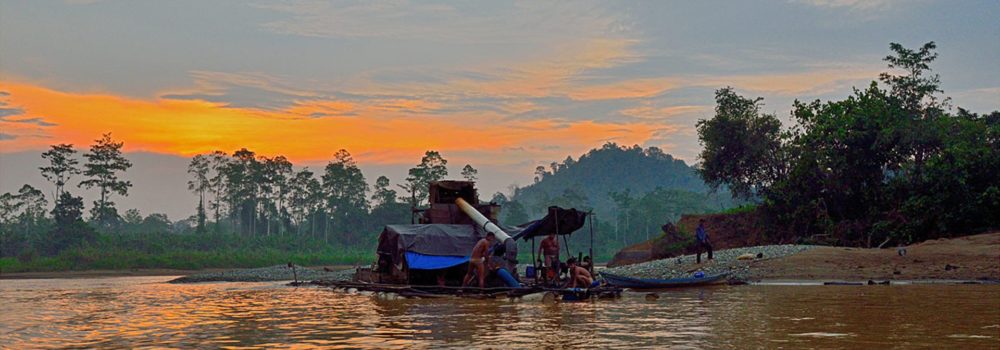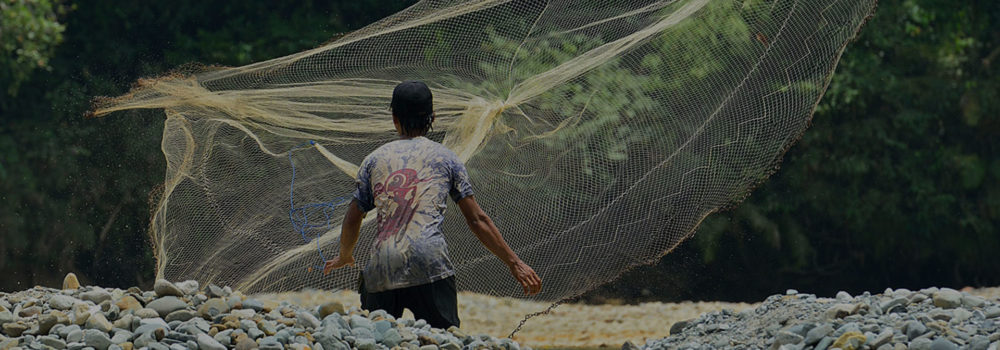Our Long-Term Commitment
Asiamet has been closely involved in the community and social development in Central Kalimantan since it first started working there. To this end, the company set up a foundation, Yayasan Tambuhak Sinta (YTS) in 1997 and has provided management, staffing, and financial support ever since. To date, with funding from Asiamet , YTS has been providing technical, economic, and institutional support to several of the Dayak villages surrounding Asiamet’s copper-gold project in Central Kalimantan.
In this location, YTS is helping villagers to analyse, plan, set priorities and make decisions on a whole range of issues affecting their daily lives, everything from local education and health services to economic and livelihood opportunities, and the development of local infrastructure.
The directors of Asiamet are entirely committed to YTS’s community programmes, not only to ensure that local communities share in the benefits of any future mining activity, but also as part of the company’s long-term social license to operate.
This commitment is recognized by a range of external stakeholders, including local and national governments, major international development agencies, and the many communities in which YTS works
YTS Approach
The YTS mission can be summed up as follows: “To promote and support the sustainable and equitable development of communities and society as a whole in Kalimantan.”
YTS facilitates community development in the villages close to Asiamet’s exploration area in Kalimantan.
This development strengthens the capacity of villagers and village institutions to manage the impacts from future mining development on the social, economic, environmental and cultural integrity of the community.
A Partnership of Interest
In addition to village-based development, YTS is seeking a framework for regional development. The objective is to create a broad partnership of stakeholders – from government, communities, business and funding agencies – who will work together to build an integrated platform for future development of all sectors in Kalimantan.
This will provide a rational basis for future investment and development. YTS helped the district government launch a Multi-Stakeholder Forum for dialogue that already has resulted in companies supporting government programs in health, education and infrastructure.
In addition, YTS has been supporting community involvement in the government’s bottom-up planning mechanism, called ‘Musrenbang’.
This activity reinforces the community-based participatory planning process that YTS facilitates, by drawing the result – the ‘Village Development Plan’ – directly into the government arena, where the administration is obliged to respond to the collective needs and demands of villagers.
YTS plans to extend this approach throughout the district, and initiated a four-year Ford Foundation-funded initiative designed to improve the planning and budgeting capacity of district government for local communities.
On its own, YTS has attracted donor agencies from the USA, Canada, Australia and the UK to invest in development projects in the province.
Kalimantan Kids Club
Kalimantan Kids Club was established in 1986 to help poor Dayak families educate their children. In remote areas, schooling is limited to elementary level.
Young people have to leave their village in order to complete their basic education, and students from poorer families cannot afford this expense.
To date, more than 400 young people have received scholarships to continue their education to higher levels.
The scholarships provide a commitment to subsidize school fees, supplies, and living expenses until the students complete their education
Livelihood Strengthening
YTS has organised technical assistance and material support for the major livelihood activities in the 22 villages, including aquaculture and small livestock, food crops such as vegetables and rice, and cash crops like rubber.
Our current program focuses on fish, vegetables and rubber, as these have the greatest potential to improve household incomes and livelihoods.
We plan to link village producers of fish and vegetables to palm oil, timber and mining companies operating in the area to secure a stable market for sustainable production.
We will be introducing rubber production technologies that will produce a high-quality latex that can be sold at three times the current price.
Community Mining
YTS first began to investigate community mining practices in Central Kalimantan in 2006, during implementation of the Global Mercury Project, as funded by UNIDO. Since then, YTS has conducted a great deal of action-research into the activities of the sector as a whole.
Community gold mining is a long-established livelihood activity for many of the indigenous communities in the province; and provides an important source of revenue. Our research has sought to identify appropriate technology solutions that can reduce environmental and health impacts from the activity, as well as to identify barriers to formalization of the sector.
YTS has also been working to mainstream national action planning processes that result from Indonesia’s ratification of the Minamata Convention. To this end, YTS has been sharing its knowledge-base and building capacity at provincial and district levels, while maintaining an active dialogue with the national government on the issue of mercury pollution from community gold mining. YTS has received additional funding for this work from a variety of donors, including United Nations Environment, the Government of Canada, and Pure Earth.
The Environment and Biodiversity
YTS formally recognises meaningful biodiversity conservation and environmental education and community outreach programmes. With this is mind, YTS has initiated a a number of biodiversity projects varying in scope and size and each provides unique benefit and value for both the environment as well as the communities which we work closely with in partnership.
One such project is our Social Forestry project funded by USAID which will enable villagers to register and start managing more effectively the forest resources within the boundaries of their villages.

